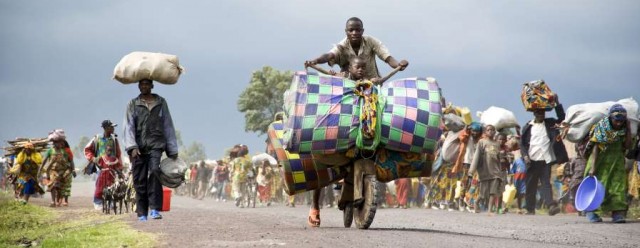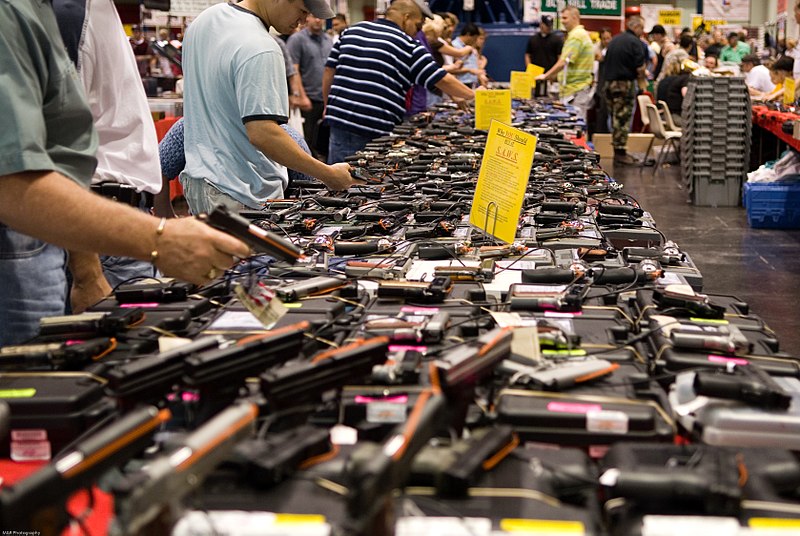The Democratic Republic of the Congo (DRC) is one of the world’s poorest countries. Despite a huge bounty of natural resources, the DRC falls near the bottom of most measures of economic and human development. Yet, the country is not known for being poor, and is instead recognized for its bloody civil war that has raged since 1998, killing between 2.5 and 5.4 million people. Over the course of the conflict, over twenty pro and anti-government factions have battled for supremacy, with the participation of the DRC’s neighbours, such as Rwanda, Uganda and Angola. Many scholars point to the DRC as the premier example of a phenomenon known as the ‘conflict trap’.
The conflict trap refers to a theorized feedback loop that exists between a low, stagnant level of development on one hand, and a high risk of civil conflict on the other. The concept of the conflict trap is a key element in the liberal model of international development and peace-building. This is important beyond the moral problem of human suffering: civil war not only creates atrocities in the war-ridden country, but increases the likelihood of conflict in neighboring countries, creating dangerous ‘ungoverned’ areas that can act as breeding grounds for organized crime, extremism and terrorism.
According to the view of the conflict trap put forward by the World Bank, civil war is much more likely to occur in two types of countries. These are “marginalized developing countries,” states with a low, poorly distributed and stagnant level of economic and human development, as well as countries that have already experienced civil conflict and are caught in the conflict trap. Under the World Bank’s model, social tensions tend to be caused or exacerbated to the point of civil war due to economic underdevelopment. While other risk factors such as ethnic tensions, government type and geography exist, they are statistically less important for predicting the likelihood of conflict than economic factors.
The World Bank’s model identifies the principal economic risk factors for the emergence of a civil war: the level of per capita income, the growth rate of a country, and how dependent a country is on raw-material exports, such as agricultural products and minerals. According to the theory, low income and growth increase social tensions by heightening competition for resources. Meanwhile, a reliance on raw-material exports increases the risk of conflict for two reasons. First, natural resource revenues or ‘rents’ tend to accrue to the state; thus, control over the state apparatus and its economic influence becomes something worth fighting for. Secondly, commodities such as precious metals or export crops are ‘lootable’: easy for rebel groups to produce or scavenge and then export from the territory they control. This gives potential rebels access to secure sources of financing. In the DRC, for example, rebel groups throughout the Eastern Congo have financed themselves with slave-mined exports of coltan, a mineral essential for producing many modern electronics.
Meanwhile, the negative effects of civil war on economic development are extensive. War itself costs money, both in military expenditures and in lost production of non-military goods. War kills and displaces many people and often stunts individual human development, as combatants and refugees lose opportunities to develop other skills. Civil war and environmental degradation are often related. As the rule of law deteriorates and the warring parties become more desperate, deforestation, poaching and other devastating practices become more common. Over time, conflict becomes less ideological and more commercial, with the emergence of bandits and ‘violence entrepreneurs’. This has characterized fighting in the DRC, with rebel groups and even Congolese army units engaging in rampant looting and corruption.
Even after the termination of a conflict, there is long-lasting damage, which increases the likelihood of a renewal of conflict in the future. Capital flight and high military spending persist even once a peace agreement is signed. Society becomes polarized as the warring parties force individuals and communities to take sides. Social capital deteriorates and corruption becomes rampant as institutions are politicized. Crime and violence remain endemic, and political stability and openness tend to decline. Weapons, unlike jobs, are often widely available, making a return to conflict even more likely. Thus, conflict-afflicted countries fall into a vicious circle, the conflict trap: economic underdevelopment fuels conflict, which fuels further stagnation. This stagnation makes a continuation of conflict more likely, producing further economic disaster. Without targeted intervention, it is nearly impossible for countries to rise out of the conflict trap.
The World Bank recommends a number of policies to prevent countries from falling into this cycle. These include increasing economic growth through reform and diversification away from primary exports, along with political reform favouring decentralization and protection of minority rights. Post-conflict, the World Bank recommends international peacekeeping efforts on a case-by-case basis, involving demobilization and reintegration of combatants, the mobilization of foreign aid to finance reconstruction, the implementation of socially inclusive economic reforms such as increased health and education spending, and short-term economic stimulus.
When it comes to poor countries and the conflict trap, prevention is better than treatment. Intervention is expensive, dangerous and fraught with uncertainty and the potential to make things worse. For Canada and other Western countries though, the moral responsibility to protect and defend innocent lives, and the necessity to prevent conflict zones from becoming shelters for dangerous groups, means that involvement in peace-building, international development and careful diplomacy is a necessity. It does not just fulfill our moral duty to humanity, but protects us from the dangers that emerge from nations trapped in conflict.





